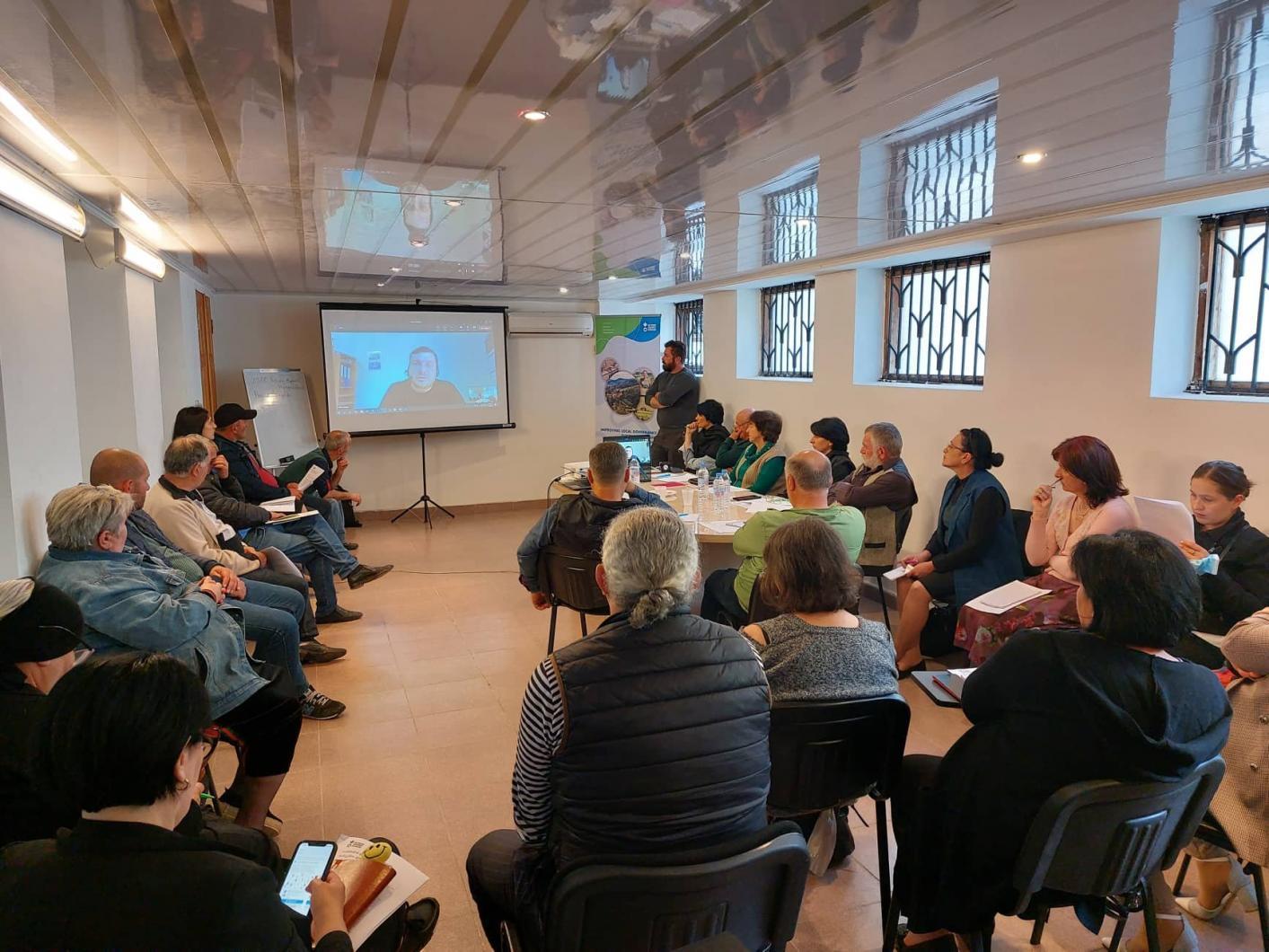

What is happening in Action Against Hunger, South Caucasus, in June
EPIC Project to commence training of state partners in Georgia
Action Against Hunger will implement a training for the State Employment Support Agency in Georgia on the inclusive ‘Shuttle’ approach to support the employability of vulnerable groups, especially women, youth and people with disabilities. This activity is performed within the framework of the project “Economic and Social Participation of Vulnerable Displaced and Local Population in the South Caucasus (EPIC)”, funded by the German Federal Ministry for Economic Cooperation and Development (BMZ) and implemented by the Deutsche Gesellschaft für Internationale Zusammenarbeit (GIZ) GmbH. This will be a five-day training course and it will be held between the 13th and 20th June, 2022.
Action Against Hunger will also sign a Memorandum of Understanding this month with the partner Professional Skills Agency, as well as with two state vocational education colleges.
Action Against Hunger and partners are finishing the first round of Explosive Ordnance Risk Education in schools
In 42 schools across Armenia, Explosive Ordnance Risk Education is set to be completed on the 3rd June. This is part of the project “Ensuring access to essential protection services for displaced people from Nagorno-Karabakh in Armenia” funded by EU Humanitarian Aid and implemented by Action Against Hunger, HALO Trust, Partnership & Teaching and Mission Armenia.
From the 6th - 20th June, the project partners, and a contracted film company, will collect footage in four multi-functional centres in Syunik, Yerevan, Artashat and Hrazdan. This will capture the actions and achievements of the project, as well as the experience of the children, their caregivers and the project implementers.
Later in June, Action Against Hunger will organize a partners’ representatives’ retreat, combining the capacity building sessions on “Partnership Building, Networking and Local Advocacy” and sessions on different aspects of Programme Management.
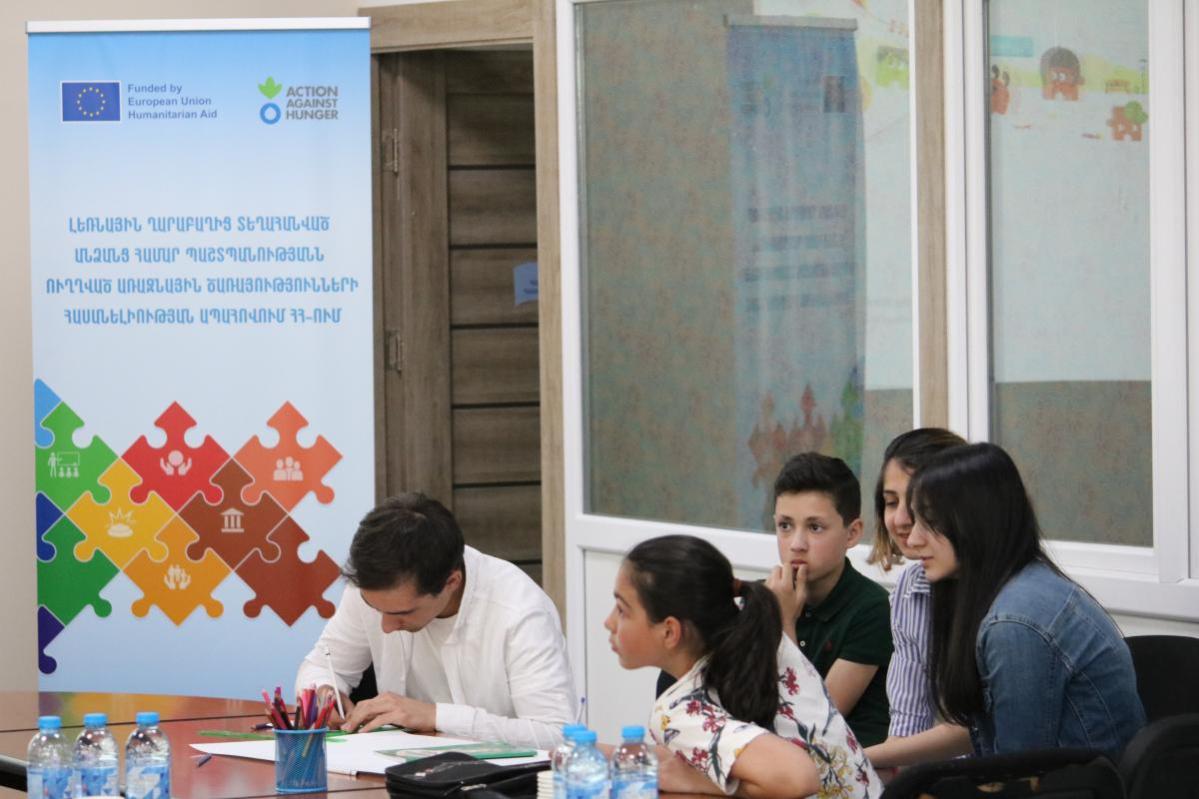
From a recent visit to the ECHO Child Friendly Space, in Shengavit, May 2022.
Local Action Groups in Georgia proceed with Sub-Grant process.
The Local Action Group in Zugdidi has hosted trainings on Business Plan (BP) development and Project Proposal writing, which is to be completed on the 4th June. This is part of the project “Improving local governance through inclusive development approaches”, implemented by Action Against Hunger and funded by the Austrian Development Agency, with funds from the Austrian Development Cooperation. The aim of these training sessions is to support grant applicants who have passed the ‘Expression of Interest’ stage, to develop a quality business plan, and apply to the next stage of the grant competition. Applicants have been divided into six groups, with separate deadlines for the submission of their Business Plans and Project Proposals.
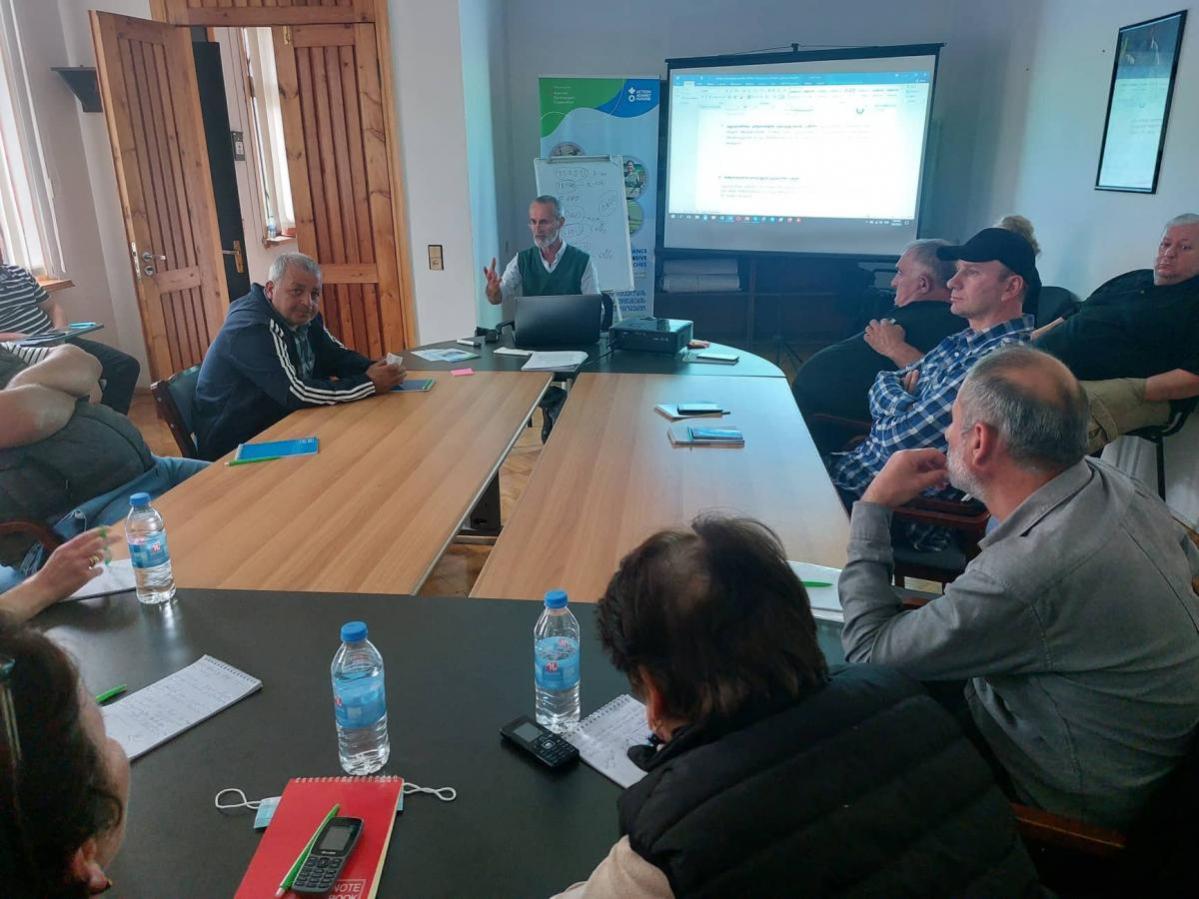
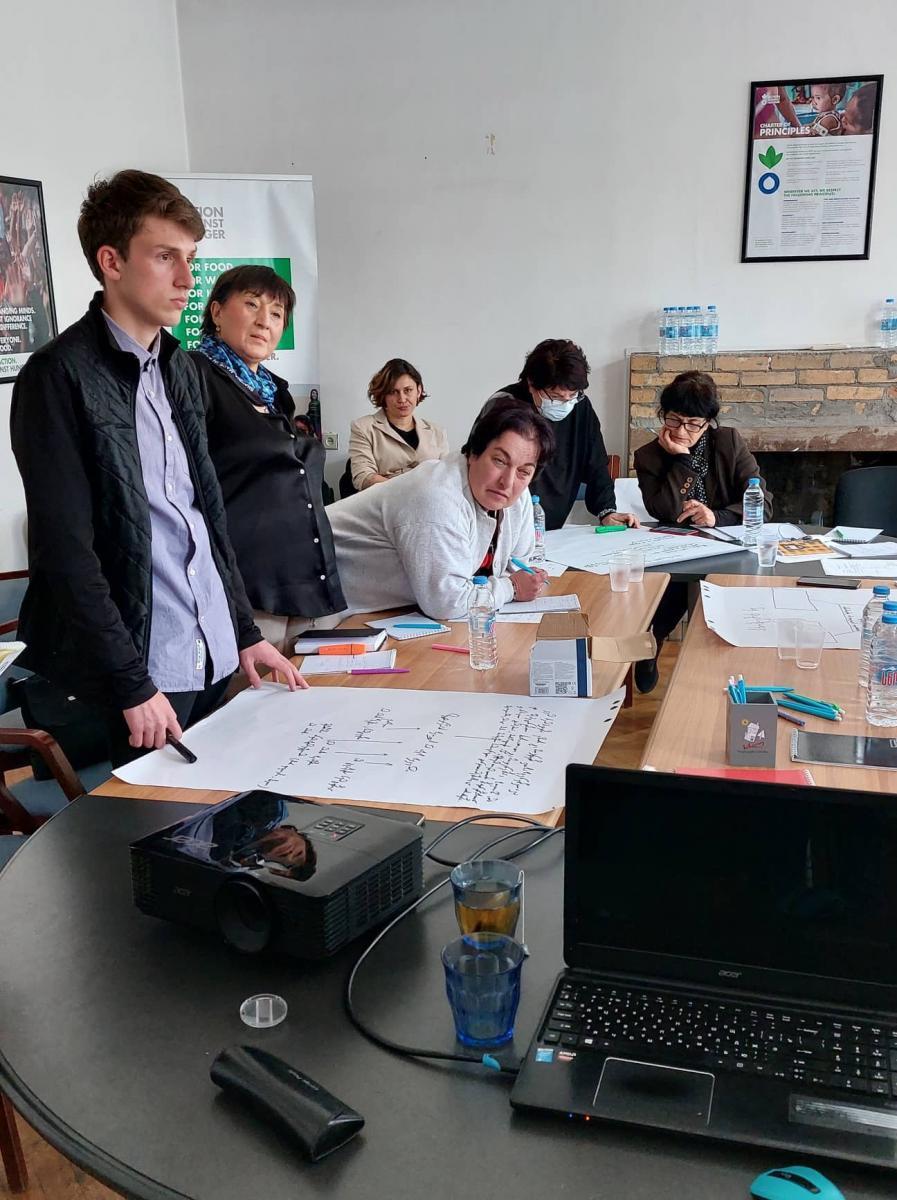
Zugdidi LAG trainings for potential grant recipients, May 2022.
Akhmeta Local Action Group, also part of the abovementioned project, has been conducting its selection of 96 ‘Expression of Interest applicants to move to the second stage of grant applications. The trainings for these applicants, like the above, were launched on the 19th May and will end on the 5th June.
UNHCR Livelihoods Project in Abkhazia to start financial support.
Action Against Hunger will commence its economic support to the rural agricultural community within south-eastern Abkhazia, as part of its livelihoods support project, funded by the UNHCR. Action Against Hunger, and UNHCR, will support 5 Active Farmer Groups, that act as informal cooperatives, to expand or develop their businesses. This will be through an open and competitive selection process, based on the business development/expansion ideas presented in the Expression of Interest application.
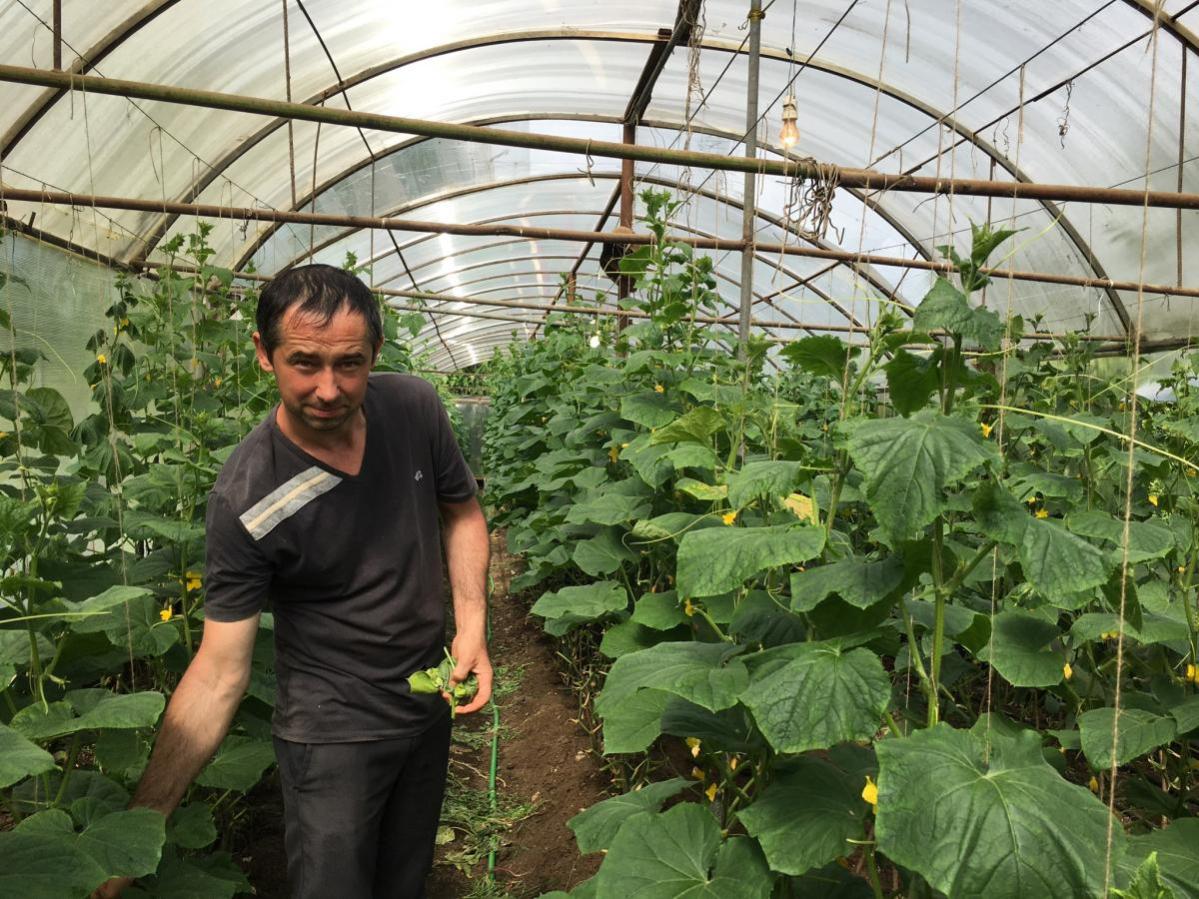
A beneficiary of the previous phase of the UNHCR LIvelihoods project support.
ENPARD IV in Abkhazia to start trainings in three Agricultural Training Centres, run by Action Against Hunger.
In June, Action Against Hunger will commence trainings within three Agricultural Training Centres on subjects determined by, and of high interest to, local farmers and key agricultural stakeholders.
